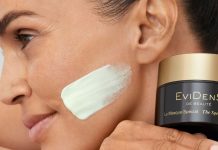
UK Cosmetic Procedure Regulation Review – Mike Saul: “too little too late”
With the cosmetic surgery industry set to be worth £3.6bn in the UK alone by 2015, there are growing concerns that the current regulations in place are not satisfactory for its staggering growth, leaving potential victims of cosmetic surgery negligence at greater risk.
A review of these UK cosmetic surgery regulations, commissioned by the Department of Health, could be too late, experts are warning.
Michael Saul, Head of Cosmetic Surgery Negligence at Cosmetic Surgery Solicitors, agrees that the review simply did not come soon enough. “Profits before patients, that’s what happens. Surgery is sold like double glazing and it’s totally wrong.” He goes on to say that “it is very difficult for there to be any rational and reasonable opposition [to the review recommendations].”
What did the review in to the cosmetic surgery industry recommend?
Cosmetic Regulation Review recommended the following:
- Legislation to classify fillers as prescription only treatments
- A formal qualification for anyone who injects fillers or Botox
- A register of everyone who performs surgical or non-surgical cosmetic interventions
- A ban on special financial offers
- Formal certificate of competence for cosmetic surgeons
- A breast implant register to monitor all patients
- Patients’ procedures have to be approved by a surgeon and not just a salesperson
- Compulsory insurance in case things go wrong
- Pooled fund to help patients in case companies go bust
The review followed an international health scare after faulty breast implants were made by French firm, Poly Implant Prothese (PIP). No data was kept on which women had received these PIP implants – it was declared a “data-free zone”.
It’s not only breast implant surgery that has come under scrutiny. Problems also exist with Botox regulations. It should only be available on prescription but the treatment is far more accessible than that.
The biggest growth is in non-surgical procedures such as Dermal fillers, Botox and laser hair removal, all of which are deemed ‘almost entirely unregulated’. This approach is severely negligent, turning patients into victims all too easily, and unnecessarily.
Michael Saul has dealt with multiple clients suffering at the hand of negligent non-surgical procedures, including a patient who, after being injected with a dermal filler, instantly became blind in one eye.
Attitudes to cosmetic surgery needs to change
Sir Bruce Keogh, the NHS medical director for England who led the review elaborates on this, commenting that “anyone, anywhere, at any time, can give a filler to anybody else – and that’s bizarre.” Dermal fillers are presumed to have no medical purpose and are therefore regulated in the same way as toothbrushes. Evidently, this is wrong.
‘Double-glazing’ sales techniques to motivate people to undergo cosmetic surgery, such as Buy-One-Get-One-Free deals, as well as offering surgery in raffle prizes, need to be readdressed.
Although the European Union is looking at tightening the rules, these changes aren’t expected to come into play for five years. Sir Bruce Keogh has said “I don’t think we can wait, keeping our citizens at risk.” The delay in reviewing these inadequate regulations has gone on long enough. It’s time the regulations reflected the safest standards patients deserve.
If you are concerned that you’ve suffered at the hand of a negligent cosmetic surgeon, arrange a call with a cosmetic negligence solicitor at Cosmetic Surgery Solicitors, who will gladly assist you with any queries you may have.
Michael Saul
Head of Cosmetic Negligence at TJL Solicitors LLP
Website: www.cosmeticsurgerysolicitors.co.uk
Freephone: 0808 256 1667











